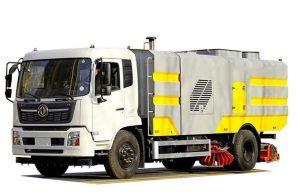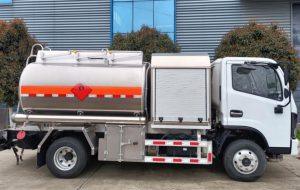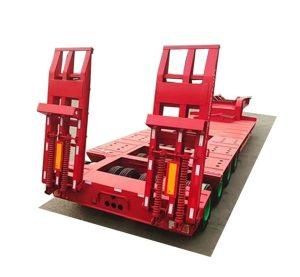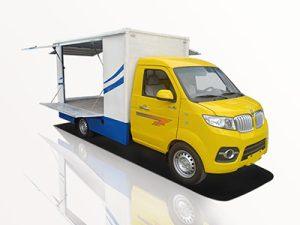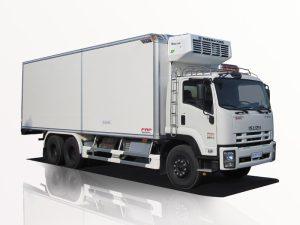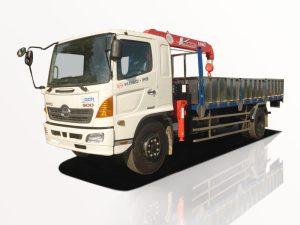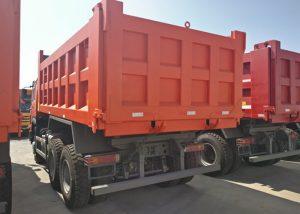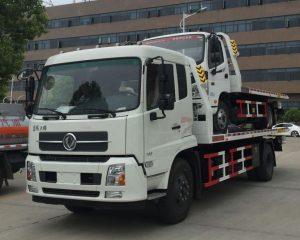Monday to Saturday - 8:00 -17:30
Hydraulic Trash Compactor: An In-Depth Guide to Efficient Waste Management
Welcome to the comprehensive guide on hydraulic trash compactors, a vital equipment used in waste management across various industries. In this article, we will explore what hydraulic trash compactors are, how they work, their benefits, applications, and maintenance tips, along with practical examples to illustrate their utility. With the increasing need for sustainable waste disposal solutions, understanding hydraulic trash compactors is essential for businesses aiming to optimize their waste management processes.
What is a Hydraulic Trash Compactor?
A hydraulic trash compactor is a machine designed to compress waste materials into smaller volumes. It uses hydraulic force to create pressure, reducing the size of waste, which can lead to cost savings in disposal operations and make the waste handling process more efficient. Hydraulic trash compactors are commonly used in residential, commercial, and industrial settings to streamline waste management.
How Does a Hydraulic Trash Compactor Work?
The operation of a hydraulic trash compactor involves several key components:
- Hydraulic System: The hydraulic system generates the force needed to compress waste. It consists of a pump, reservoir, and hydraulic cylinders.
- Compaction Chamber: This is where the waste is placed for compaction. The chamber is designed to hold various types of materials.
- Control Panel: Operators use the control panel to operate the compactor, adjusting settings as necessary.
The process generally includes loading the waste into the compaction chamber, activating the hydraulic system, and allowing the ram to press down on the waste. Once compacted, the waste takes up less space, making it easier to store or transport.
Benefits of Using a Hydraulic Trash Compactor
1. Space Savings
One of the primary advantages of a hydraulic trash compactor is its ability to significantly reduce the volume of waste. By compressing materials, businesses can reduce the number of trips needed to dispose of waste, leading to lower transportation costs.
2. Cost Efficiency
While the initial investment in a hydraulic trash compactor may be substantial, the long-term savings can be significant. Businesses often find that reduced disposal frequency and enhanced recycling potential lower overall waste management costs.
3. Environmental Impact
Hydraulic trash compactors contribute to environmental sustainability. By compacting waste and promoting recycling practices, businesses can reduce their carbon footprint and contribute to a greener planet.
4. Enhanced Safety
Using a hydraulic trash compactor helps to keep waste organized and contained, minimizing the risk of accidents and injuries associated with loose waste materials. A tidy waste area leads to a safer working environment.
Applications of Hydraulic Trash Compactors
1. Commercial Use
Businesses in retail, restaurants, and hospitality can benefit significantly from hydraulic trash compactors. For instance, a busy restaurant can manage organic waste more effectively by compacting it, allowing for easier disposal.
2. Industrial Applications
Factories and manufacturing plants often produce large volumes of waste, including cardboard, plastics, and metal scraps. Hydraulic trash compactors help manage this waste efficiently, ensuring the environment remains clean and safe.
3. Construction Sites
Construction sites typically generate vast amounts of debris. Hydraulic trash compactors help in compressing this waste, enabling construction companies to manage waste effectively while adhering to safety regulations.
4. Municipal Waste Management
Municipalities use hydraulic trash compactors for community waste bins. These compactors reduce the frequency of collection schedules, allowing for better resource allocation and efficiency in public waste management.
Types of Hydraulic Trash Compactors
1. Stationary Compactors
Stationary compactors are typically used for larger-scale operations and are connected to a compaction chamber permanently placed at a designated location. These are ideal for businesses with a high volume of waste.
2. Self-Contained Compactors
Self-contained compactors are used primarily for wet waste, such as food scraps. They contain a built-in storage container, which is sealed to prevent odors, making them suitable for restaurants and food processing plants.
3. Portable Compactors
Portable compactors are designed for flexibility and can be moved from one location to another. They are used by businesses that require a temporary solution for waste management.
Choosing the Right Hydraulic Trash Compactor
Consideration Factors
When selecting a hydraulic trash compactor, consider the following factors:
- Volume of Waste: Assess how much waste your business generates to determine the size and capacity needed.
- Type of Waste: Different compactors are better suited for specific types of waste, whether dry or wet.
- Space Availability: Ensure there is enough space for equipment installation, especially for stationary compactors.
- Budget: Discuss the costs associated with purchasing, operating, and maintaining the compactor.
Maintenance of Hydraulic Trash Compactors
1. Regular Inspections
Conducting routine inspections helps identify potential issues before they escalate. Regularly check hydraulic fluid levels, seals, and the condition of the ram.
2. Cleaning
Keep the compactor clean to prevent contamination and odor issues. Proper cleaning also extends the life of the equipment.
3. Professional Servicing
Schedule professional maintenance at least once a year. Trained technicians can conduct thorough inspections and perform necessary repairs.
Practical Examples of Hydraulic Trash Compactors in Action
Example 1: A Retail Store
A large retail store installed a hydraulic trash compactor to manage cardboard and packaging waste. Before the compactor, they made multiple trips to a landfill each week. After implementing the compactor, they reduced trips by 60%, leading to significant savings in transportation costs.
Example 2: A Restaurant Chain
A popular restaurant chain utilized self-contained compactors to manage organic waste. This not only minimized odor problems but also enhanced their recycling efforts by separating compostable materials more effectively.
Example 3: A Construction Company
A construction company used portable hydraulic compactors on-site to manage debris from building projects. This approach optimized cleanup operations, saved time, and helped maintain compliance with local waste management laws.
Future of Hydraulic Trash Compactors
As technology advances, the future of hydraulic trash compactors looks promising. Innovations such as smart technologies and automation are being integrated into compactor systems for improved efficiency. Features like remote monitoring and automated scheduling are becoming more commonplace, which will help businesses manage waste even more effectively in the years to come.
FAQs About Hydraulic Trash Compactors
1. How much does a hydraulic trash compactor cost?
The cost of a hydraulic trash compactor can vary widely depending on the type, size, and features, typically ranging from $5,000 to $30,000.
2. What types of waste can I compact?
Hydraulic trash compactors can handle various materials, including cardboard, plastics, metal scraps, and even organic waste, depending on their design.
3. How often should a hydraulic trash compactor be serviced?
It’s advisable to service a hydraulic trash compactor at least once a year. However, businesses with high usage may need to increase frequency based on wear and tear.
4. Can I install a hydraulic trash compactor myself?
While some compactors might be simple to install, it’s generally recommended to have professionals install them to ensure proper setup and safety compliance.
5. How can I maximize the efficiency of my hydraulic trash compactor?
Maximizing efficiency can be achieved by regularly monitoring waste types, ensuring proper loading techniques, and scheduling routine maintenance.
6. Are hydraulic trash compactors environmentally friendly?
Yes, hydraulic trash compactors promote recycling and reduce landfill waste, making them a more environmentally friendly solution compared to traditional waste disposal methods.


